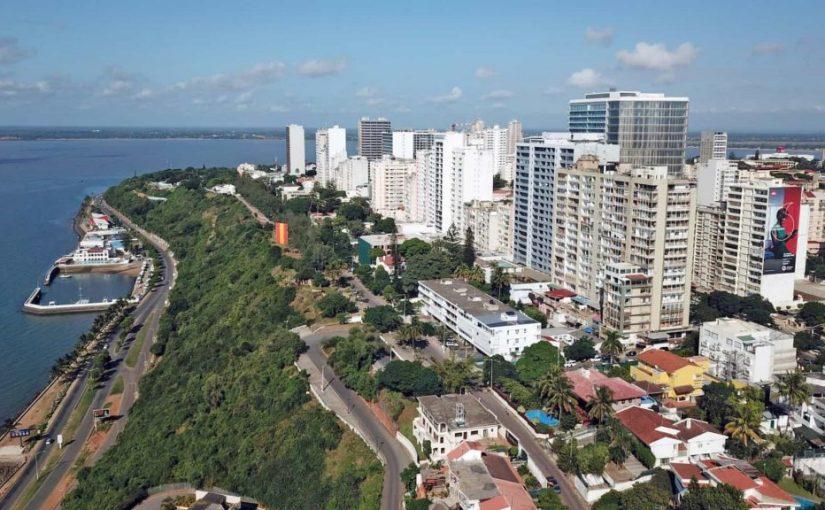Africa-Press – Mozambique. Key findings
Businesses in Mozambique noted a deterioration in operating conditions in November, the first for ten months, as demand momentum continued to slow and activity levels contracted. The downturn led to a steep reduction in purchasing activity, whilst the pace of job creation slowed to its weakest for 21 months. Nevertheless, firms retained a robust degree of confidence in future activity, supported by receding price pressures.
The headline figure derived from the survey is the Purchasing Managers’ IndexTM (PMI®). Readings above 50.0 signal an improvement in business conditions on the previous month, while readings below 50.0 show a deterioration.
For the first time since January, the headline PMI registered inside contraction territory, dropping to 49.6 in November from the 50.0 neutral value in October. That said, the reading signalled only a marginal decline in the health of the private sector.
Reflecting the headline index, output levels at Mozambican firms decreased for the first time in ten months during November. Slower demand conditions, a lack of purchasing power and payment delays were behind the fall, according to the survey panellists, although the overall decrease was only slight.
At the same time, new business growth in the private sector was only just sustained, with the rate of expansion slipping to its weakest in ten months. Granular data indicated that the upturn was solely concentrated on the wholesale & retail sector, as declines in sales were registered across agriculture, manufacturing, construction and services.
There was a faster drop in backlogs of work during November, suggesting an element of spare capacity at Mozambican companies. Subsequently, the pace of employment growth slowed to a 21-month low, with some firms even cutting staff numbers to make cost savings. As a result, overall labour expenses were largely stable after rising in each of the prior 26 months.
Input purchasing was meanwhile cut to a sizable degree. The latest fall in purchases was the sharpest recorded since May 2020, resulting in a sustained (albeit marginal) drop in inventories. While firms enjoyed a further improvement in supplier performance, November’s upturn was the softest registered since the start of the year.
With staff costs fairly settled, and a drop in input purchases leading to a reduction in supplier prices, the latest data signalled back-to-back monthly falls in overall expenses at Mozambican firms. This was the first such occurrence since early-2022, although the latest drop in input costs was only marginal. Reflecting this, firms’ output charges rose to the least degree for six months and only mildly.
Looking ahead, firms remained broadly confident of an increase in output in November. The degree of confidence ticked down from the preceding month but was strong overall, with 45% of businesses predicting an expansion. In general, firms hope to expand their operations in the coming year and foresee higher new business intakes.
Comment
Fáusio Mussá, Chief Economist – Mozambique at Standard Bank commented:
“The Standard Bank Mozambique PMI fell to 49.6 in Nov, from 50 in Oct, signalling a slowdown in economic activity this Q4:23. PMI prints below the 50-benchmark suggest month-on-month contractions in economic activity. We noted nearly all sub-indices declining comparing with the previous month, with 7 out of the 13 sub-indices still printing at the 50 level or above, suggesting a broad-based growth deceleration.
“There is little growth support from both monetary and fiscal policies, which are set to help keep inflation in single digits and manage ongoing government domestic debt pressures, which makes growth acceleration heavily reliant on liquified natural gas projects.
“Inflation has declined below 5% y/y, but with risks still high.On the fiscal side, despite the domestic primary balance
improving to 2.2% of GDP in Q3:23, from a deficit of 2.8% of GDP in 2022, there are persistent domestic debt pressures, emanating from last year’s 39.7% y/y rise in government personal expenditure to 16.5% of GDP.
“With real interest rates likely to remain high for longer, growth outside the resources economy will likely remain subdued. For 2024 we retain our forecasts of overall GDP growth accelerating to 5.1% y/y, supported by progress in LNG investments, with our year end inflation forecast at 5.9% y/y, from 4.8% y/y this year.”
For More News And Analysis About Mozambique Follow Africa-Press






